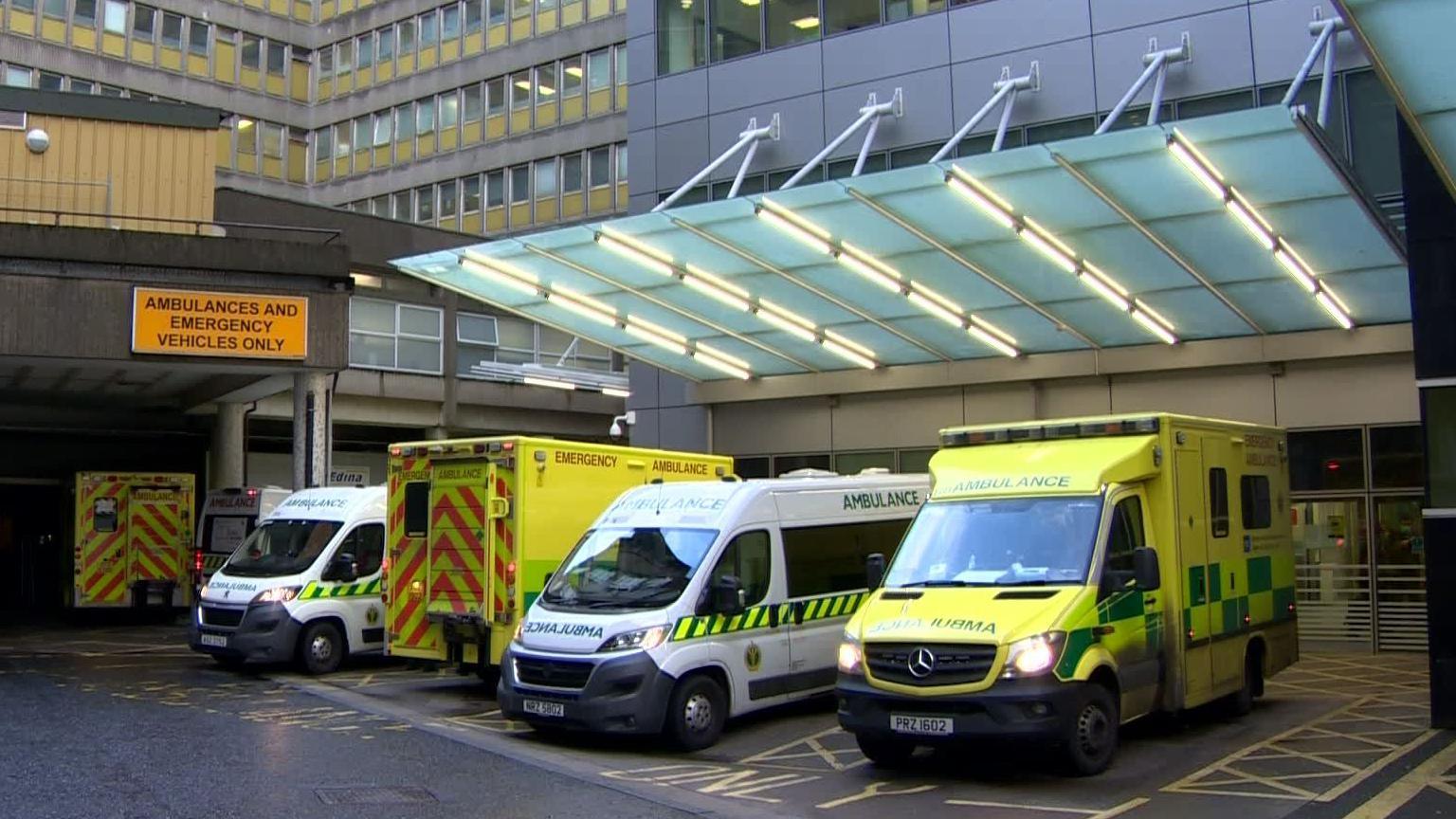Royal hospital A&E overcrowding 'still impacts safety'

Regulators found the emergency department at the hospital is operating beyond its core purpose
- Published
Overcrowding continues to impact on patient and staff safety in the Royal Victoria Hospital's emergency department, the health regulator has found.
A follow-up inspection was carried out by the Regulation and Quality Improvement Authority (RQIA) last winter, a year after their initial review.
It found that the ED "continues to function well beyond its capacity and outside its core purpose".
The report detailed that the Belfast Health Trust failed to fully comply with nine recommendations for improvements.
The Belfast Trust said it was still operating under "unprecedented demand" but was committed to addressing the issues within its control.

In 2022-2023, the RQIA carried out an inspection of the RVH's ED, in response to the increasing level of concerns it received about the impact of significant pressure there.
It focused on several areas including patient flow, staffing, environmental factors, ED leadership, management, and governance.
One year on, RQIA inspectors said they found further evidence that overcrowding continues but noted this is "indicative of pressures across the system".
In the nine areas they asked to be improved, just three have been fully met.
Issues such as workforce, medicine management, communicating with front line clinical staff and environment cleanliness are reported as being only "partially met".
The RQIA said ED staff "described the term 'winter pressures' as meaningless" in relation to overcrowding.
Staff said winter pressures are "now ever-present" and that "actual harm to patients was under-reported, with prolonged stays and delayed pathways starting in the ED environment".
- Published26 July 2023
- Published8 December 2022
The report also said that staff raised concerns that a high percentage of the longest waiting patients within the ED were often over 75 years of age and said they "as a demographic are known to have higher mortality rates when care pathways are delayed".
It said staff felt a "sense of failure when patients come to harm, but they feel powerless to do anything about it".
The report said Belfast Trust recognised that their staff remain "seriously concerned" about the overcrowding and have asked the Health and Safety Executive and the Commissioner for Older People to visit the EDs "to witness the impact of pressures first hand".
Even though action has been taken by the Trust, ED staff "still feel that there has been little evidence of improvement; with some staff reporting that conditions had actually worsened".
Despite the challenges, the inspection report highlights "areas of good practice" where there is "evidence of teams continuing to provide mutual support to each other in times of extreme pressure".
The RQIA said it is not taking any further action as most of the issues that are at the heart of overcrowding are attributable to "wider system pressures" across the healthcare system in Northern Ireland.
It said most of these issues need a "strategic regional approach and centrally led reform".
The RQIA said there are matters the Belfast Trust can address including improving internal communication with frontline clinical staff and continuing to strengthen the workforce assessment needed across clinical and support service staffing, within emergency services.
'Unprecedented demand and overcrowding'
In a statement, the Belfast Trust said that progress has been made in some areas like in communication with frontline clinical staff and a workforce review.
But it said that emergency departments "continue to face unprecedented demand and overcrowding".
It continued: "Belfast Trust are committed to addressing the issues within our control, and we pay tribute to the dedication of all our staff who continue to work in very challenging circumstances."